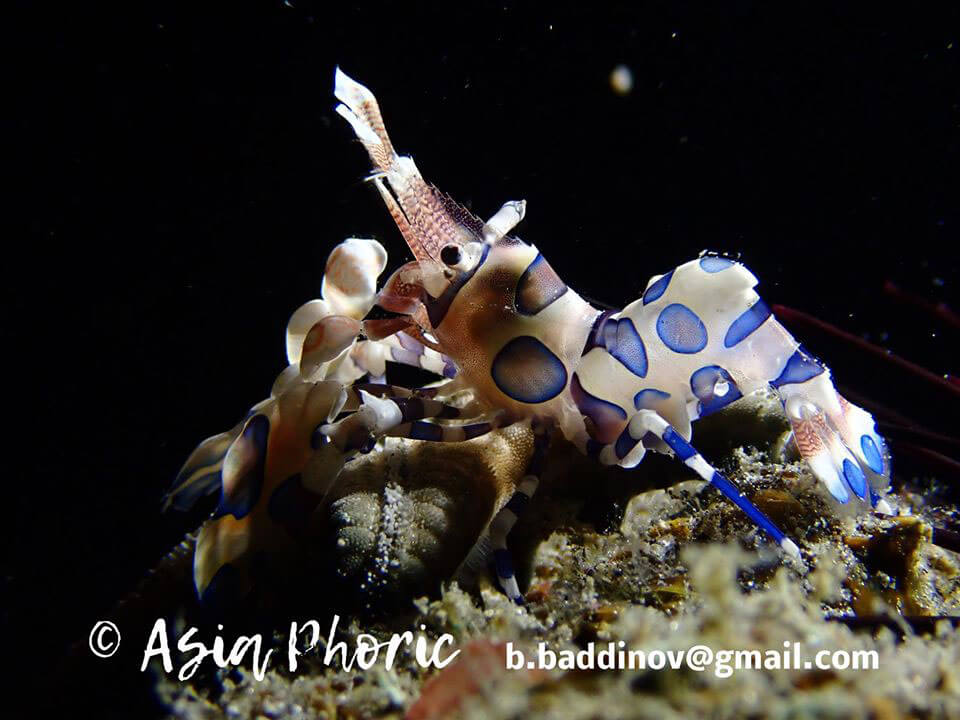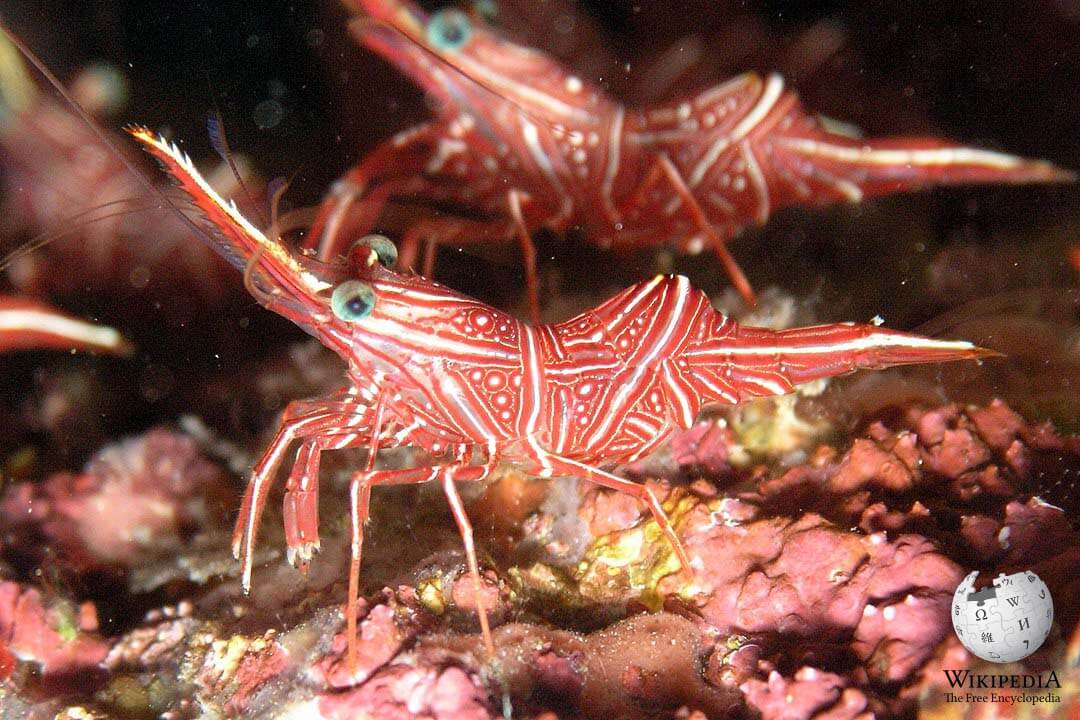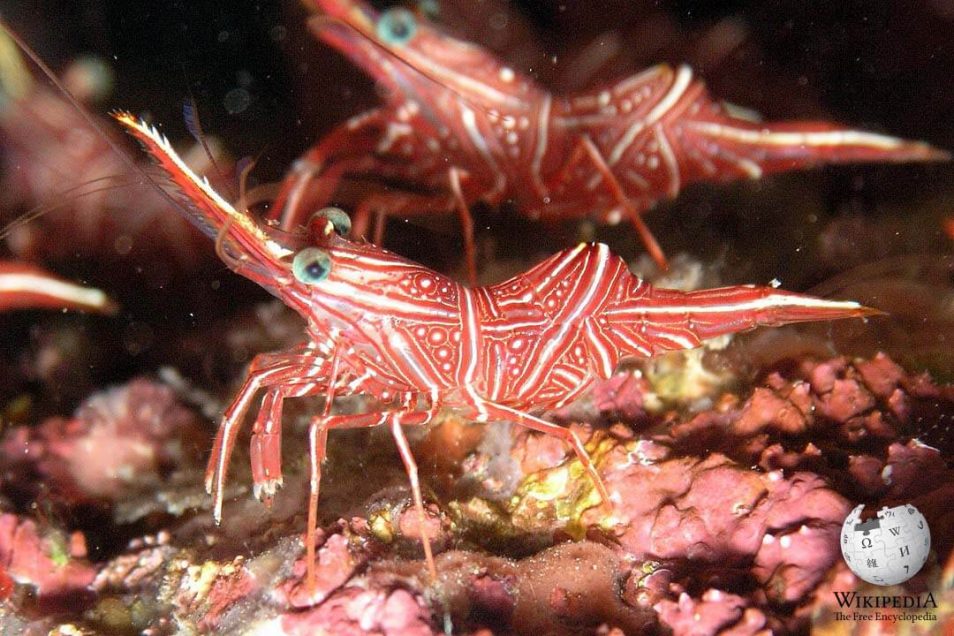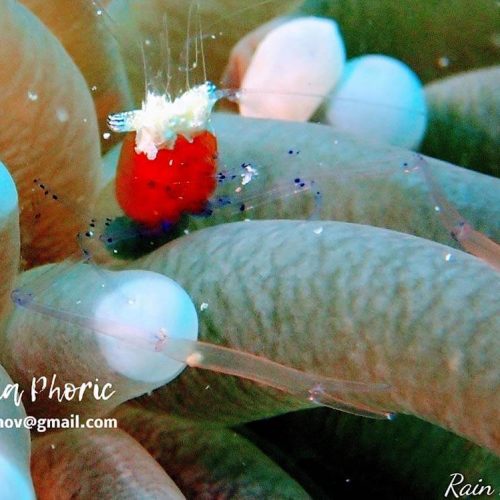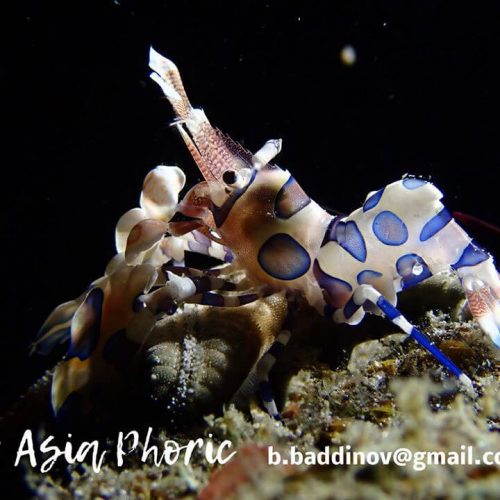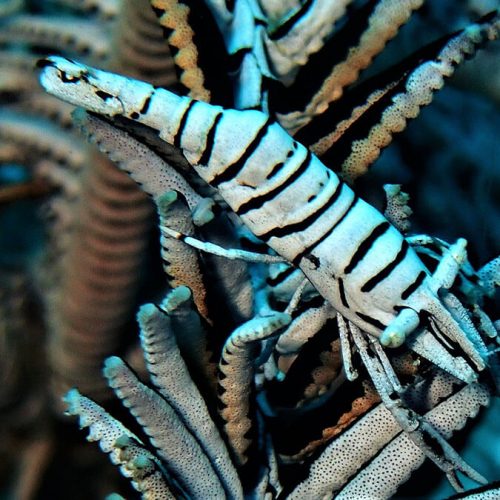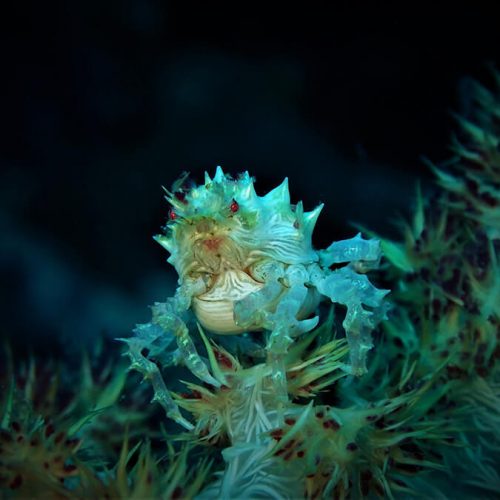Contents
Rhynchocinetes durbanensis, commonly known as the camel shrimp and the hingebeak prawn, is a species of shrimp (family Rhynchocinetidae) found in the Indo-Pacific. Up to 4 cm (1.6 in) in length, the shrimp has large black eyes, and features red and white lines on a translucent body. It has many white ocelli (spots) as well as a Y-shaped white mark on the upper front part of its carapace. It is strongly sexually dimorphic, and dominant males have larger first pair of chelipeds.[1] The shrimp is found in hollows and crevices from 5 to 35 metres (16 to 115 ft) deep, where it forms groups consisting of dozens of individuals.[2] One study determined that the ovigerous females carry from 267 to 1764 eggs, and the eggs take 9 days to hatch after spawning at a temperature of 29.2 °C (84.6 °F), or 18 days when the temperature is under 22.0 °C (71.6 °F).[3] R. durbanensis has been frequently confused with R. uritai,[4] and also closely resembles .[2] R. durbanensis was first described scientifically by Isabella Gordon in 1936.[5][6]
References
- ^ Calado, Richard (2009). Marine Ornamental Shrimp: Biology, Aquaculture and Conservation. John Wiley & Sons. p. 22. ISBN 978-1-4443-0940-9.
- ^ a b Ferrari, Andrea; Ferrari, Antonella (2002). Reef Life. Firefly Books. p. 264. ISBN 978-1552096253.
- ^ Chen-Cheng, Cheng (2007). "Studies on larval development of the rhynchocinetid shrimp (Rhynchocinetes durbanensis)". Journal of Taiwan Fisheries Research (in Chinese). 15 (1): 13–25. ISSN 1018-7324.
- ^ Okuno, J.; Takeda, M. (1992). "Distinction between two hinge-beak shrimps, Rhynchocinetes durbanensis Gordon and R. uritai Kubo (Family Rhynchocinetidae)". Revue française d'aquariologie et herpétologie. 19 (3): 85–90.
- ^ Gordon, Iabella (1936). "On the macruran genus Rhynchocinetes, with description of a new species". Proceedings of the Zoological Society of London. 106 (1): 75–88. doi:10.1111/j.1096-3642.1936.tb02280.x.
- ^ De Grave, S. (2012). "Rhynchocinetes durbanensis Gordon, 1936". World Register of Marine Species. Retrieved 2012-11-17.
External links
 Media related to Rhynchocinetes durbanensis at Wikimedia Commons
Media related to Rhynchocinetes durbanensis at Wikimedia Commons- Photos of Rhynchocinetes durbanensis on Sealife Collection

